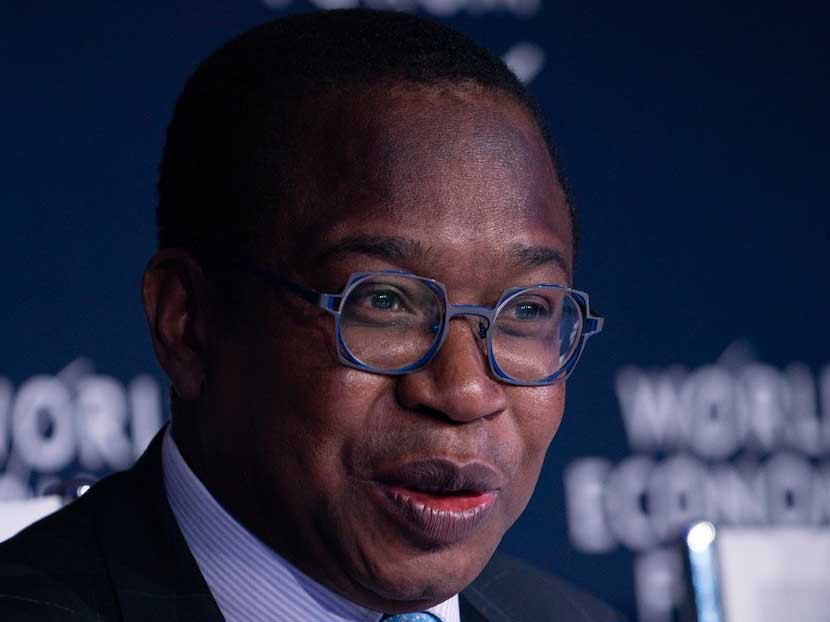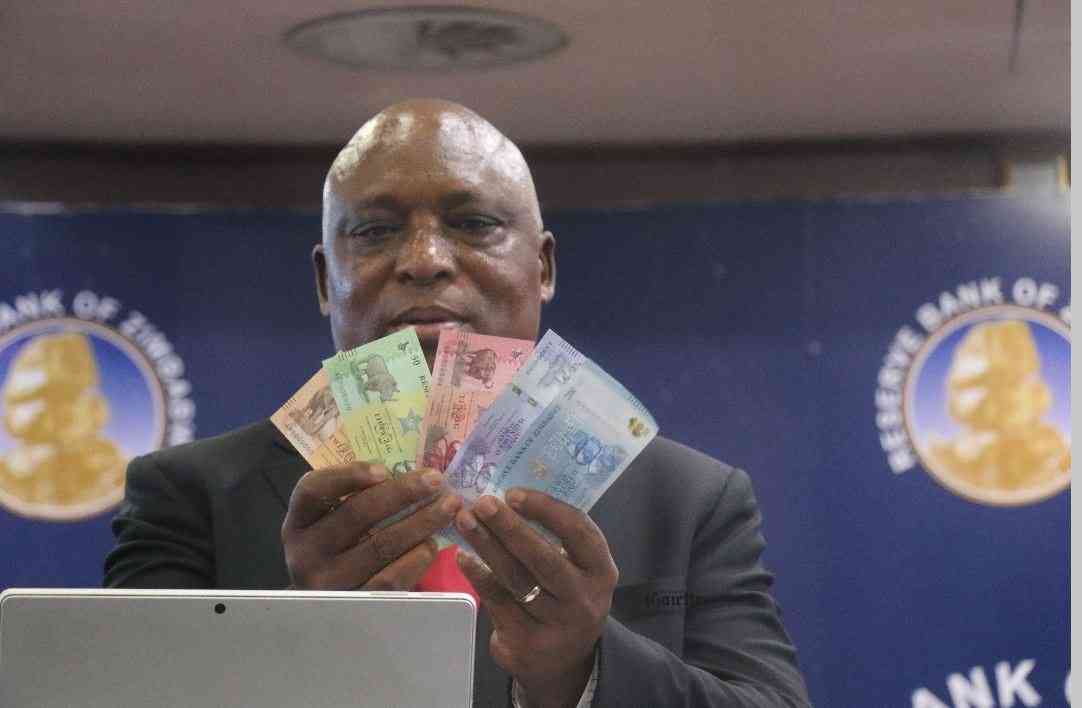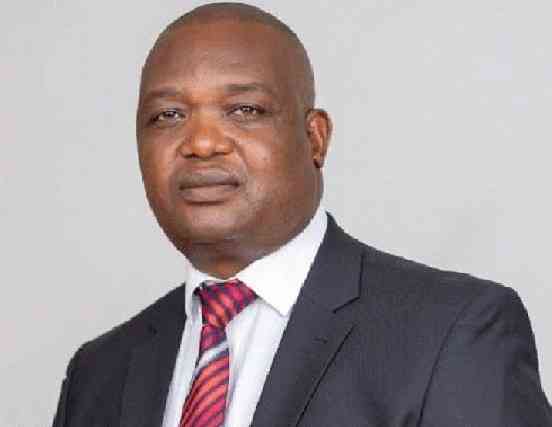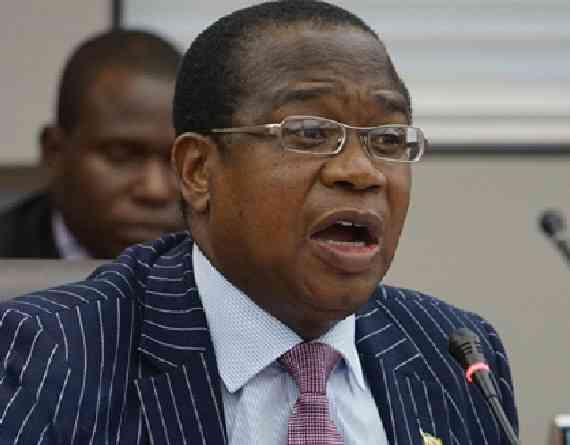
Speaking to African Business at the World Economic Forum in Davos, Finance minister Mthuli Ncube said the country’s economic fundamentals were sound and forecast healthy growth in the next five years.
At the end of 2022, Zimbabwe announced a ban on the export of raw lithium, a key component used in the making of batteries. Also last year, its agriculture sector enjoyed strong harvests, with record surpluses of wheat. Nonetheless it has been a difficult time for the country, which is still excluded from international capital markets and has to contend with its volatile currency.
Below are excerpts from the interview he had with African Business.
African Business: We first met when you were chief economist at the African Development Bank. How has it been, moving from theory to practice and having to make decisions that are critical to a country’s future?
Mthuli Ncube: Being chief economist of the African Development Bank was very good training. In my current position, we have had to deal with some of the issues I used to advise countries on, issues around macroeconomic management and fiscal consolidation.
In Zimbabwe, we underwent a very aggressive fiscal consolidation programme and since 2019, the country has not run a deficit of more than 3%. We have had a current account surplus for the last four years. I am very pleased that in terms of some of the key macroeconomic issues, we’ve been able to do the right thing.
What has been an issue for us is just currency volatility and that is because we introduced a new currency. Zimbabwe had no domestic currency of its own, it was using the US dollar for quite a while, 10 years in fact.
Stabilising that has not been easy. In the face of the current global pressures — climate change pressures, Covid-19, as well as the pressures now with all the global tensions, stabilising a currency under those circumstances is never going to be easy.
- Renault hands Russian assets to Moscow
- New perspectives: Building capacity of agricultural players in Zim
- News in depth: Mnangagwa’s push for $12 billion mining industry imperils communities
- New perspectives: Building capacity of agricultural players in Zim
Keep Reading
What the new currency has done is to unleash competitiveness — 70% of the goods on the shelves you can buy are locally produced.
I am also very pleased with progress in the mining sector in terms of the volume of investments right across the board — diamonds, gold, lithium — all manner of minerals. The platinum group metals have been a very good investment. In the next three years, Zimbabwe will easily be one of the largest producers of carbon steel in sub-Saharan Africa because we have got so much iron ore.
Agriculture has turned around; last year we had the best wheat winter crop in 50 years. The turnaround in tourism due to the end of Covid-19 has also been great. Overall, I am very pleased with where we are in terms of economic performance.
Following a growth rate of 8.5% in 2021, we anticipated growth of just over 4% in 2022 and a similar rate in 2023, and then growth will pick up further. Over the next five years, we expect the growth rate to average about 5% and above and we are very happy with that. All systems are go.
African Business: You have been virtually cut off from international finance sources for a long while. How are discussions with the international finance institutions (IFIs) progressing?
Mthuli Ncube: The first order of business is to have a debt resolution so that we can restructure our debts with the IFIs — mainly the World Bank, European Investment Bank and African Development Bank. We have started a process working with the creditors — the IFIs as well as the Paris Club partners.
Dr Akinwumi Adesina, president of the African Development Bank is helping lead those discussions. We have conversations about the key reforms that will be required for us to have a meeting of minds with the creditors, especially with the IFIs; and then we can get back onto a staff-monitored programme with the IMF.
Then, upon completion of that, hopefully [we can] identify a sponsor — in the language-speak of arrears clearance — to assist us in meeting the bridge financing that is needed to clear arrears for both the AfDB and the World Bank. That is the road map.
We’re looking at the next 18 months for that process to be concluded – but we have to stay focused.
African Business: Currency volatility has attracted a lot of attention. Can you give us a bit of background on the currency issue?
Mthuli Ncube: When we came into government in 2018, we found a situation where Zimbabwe was using the US dollar as its domestic currency, which meant that Zimbabwe had no monetary policy. You cannot control the printing of US dollars that are being used in your country.
The only tool we had was fiscal policy. We had to re-establish monetary policy. I reintroduced the Zimbabwe dollar in February 2019 as a new currency but Zimbabweans still had a bitter feeling about the domestic currency, since many of them had lost their life savings through the crippling inflation of 2007/2008.
We realised that within six months or so, both the Zimbabwe dollar and US dollar should be allowed to circulate — a dual currency regime.
Why do we need the US dollar to continue circulating? Because we don’t have access to easy offshore credit lines. Allowing the US dollar to circulate is partly a solution for dealing with the few credit lines that we have.
Exogenous shocks have brought with them new issues and as a result created some volatility. But what I can say is that the new currency has given our industry some competitiveness and we see this in terms of the goods on the shelves being manufactured domestically. That was intentional and, as I mentioned earlier, we have also been running a current account surplus for the last four years.
We make sure that we maintain that tight fiscal management and make sure that the deficits don’t run away and become a problem that may lead to currency volatility.
Inflation in the country has been caused in part because of external factors and also because of a volatile currency. When we have episodes of currency stability, inflation drops quite sharply so we now know that currency stability is the major key to inflation control in Zimbabwe.
African Business: Are you saying that the volatility is not based on fundamentals?
Mthuli Ncube: It is driven by speculation; it is driven by the search for arbitrage opportunities by private sector players. The fundamentals are actually strong in the sense that we have basically zero fiscal deficits, monetary policy is quite tight and we try to tighten liquidity. The speculators are always there to take advantage of the situation.
African Business: The lithium ban came as a little bit of a surprise. We understand the rationale behind it but it seemed like a knee-jerk decision?
Mthuli Ncube: The government has always seen beneficiation as critical for sustaining economic growth, creating jobs and so forth. Lithium is a mineral of the future. In terms of renewable energies, it is lithium batteries that drive green cars.
Zimbabwe has one of the largest deposits of lithium in the world. We are currently the fifth biggest producer, and alongside South Africa the biggest in Africa.
Beneficiating lithium is a good thing. We are saying that you cannot export raw unprocessed lithium but if you build a concentrator it can be exported as a lithium concentrate.
African Business: Better still, if you build a lithium battery manufacturing plant, hallelujah!
Mthuli Ncube: That is the long-term aim. This policy has been [well] received. Why can’t Zimbabwe be the place where lithium batteries are manufactured? At least, let’s start by exporting concentrated lithium as a way forward.
Within weeks of announcing that ban, within days in fact, we had offers from businesses telling us they wanted to invest in lithium concentrators and manufacturing plants. The response has actually been positive from the private sector rather than negative.
African Business: This is election year in Zimbabwe. What does that mean from an economic perspective?
Mthuli Ncube: In some areas there will be delayed investments. That’s what investors do, they watch and see. At the same time, there will be high expenditure because you do see increased spending around election time in areas such as infrastructure, transportation, food distribution and so forth.
You do expect heightened activities in some areas but maybe less in some areas. Overall, these two will balance out. I don’t expect our expectations to change. We are still expecting growth to be over 4% at least.
You cited some of the policy changes that you’ve undertaken. Can we expect more policy changes over the next year?











